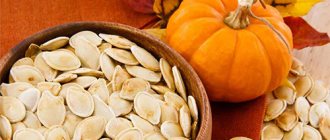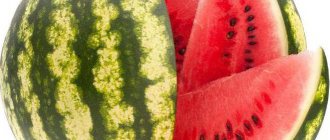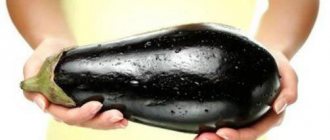Is it possible to eat grapes with breastfeeding?
Experts do not prohibit eating grapes while breastfeeding, but only in limited quantities and in cases where the baby is not allergic to this product. Then grapes will only benefit the mother and child, enrich the composition of milk, diversify the diet during the diet and have a positive effect on the body. The berries are a good alternative to confectionery and candies due to their sweet taste. Fructose does not have as strong an effect on your figure as refined sugars.
Composition, properties
Grapes are high-calorie berries. 100 g of product contains from 60 to 72 kcal. The high energy value is due to the fact that the berries contain a lot of sugars.
Grapes are also rich in vitamins and minerals. It has a general strengthening effect and a positive effect on various body systems. This is due to the presence of the following substances:
- Silicon. Required for collagen synthesis, as well as for the health of muscle and bone tissue.
- Cobalt. Participates in the synthesis of vitamin B12, the process of hematopoiesis, and fat metabolism.
- Copper. Together with vitamin C and zinc, it forms elastin. It is a skin protein that is involved in wound healing and is also required for the beauty of hair and skin. Copper helps remove free radicals from the body and normalizes blood pressure.
- Yoda. Helps with the functioning of the thyroid gland, supports the functioning of the endocrine system.
- Vitamin C. Strengthens the immune system, helps remove cholesterol from the body, is required for the synthesis of many enzymes and normal absorption of iron.
- Potassium. It has a positive effect on the functioning of the cardiovascular and nervous systems, helps with brain function, and is required for alkaline and oxygen metabolism.
- Vitamin H. Thanks to it, collagen synthesis occurs. The vitamin is also involved in metabolic processes.
- B vitamins. Necessary for the cardiovascular, nervous and digestive systems. They have a positive effect on the mood of a young mother and control appetite.
- Vitamin E. Reduces skin dryness, and also makes it more elastic and accelerates regeneration processes.
- Magnesium. Helps absorb calcium, supports the cardiovascular system, and ensures healthy muscle and bone tissue.
- Chroma. Regulates blood serum glucose levels, improves thyroid function.
- Manganese. Promotes the restoration of cartilage, improves digestive processes.
- Gland. Provides the synthesis of hemoglobin, which is required to transport oxygen to the cells of all tissues.
- Calcium. Maintains healthy teeth, strengthens bones and muscles.
Berries also contain other important elements: phosphorus, beta-carotene, vitamin PP.
Grape compote for babies
In order to prepare grape compote for your baby, you need to boil water in a saucepan and then add berries to it. Berries should be added in small quantities along with other selected fruits or berries. You should choose whole, ripe berries, since using burst, bruised or spoiled berries can cause the compote to turn sour. After the water with the berries has boiled, you need to add sugar to the pan. Determining how much sugar to add should not only be based on the volume of the pan, but also on how sour the berries and fruits are used. Accordingly, the more sour the fruits were added to the compote, the more sugar should be added. After adding sugar, the compote should boil for about 5 minutes, after which you need to remove it from the heat and leave it under a closed lid until the berries and fruits settle to the bottom of the pan. This is necessary so that the drink acquires a richer color and taste. After this, the compote is ready; a nursing mother can safely drink this vitamin drink in small quantities.
Not only children, but also adults love grapes. In terms of sugar content, this fruit ranks second, second only to a ripe banana. The balanced chemical composition and high calorie content of the berry make it an indispensable source of vitamins and minerals. It is better for a nursing mother to consume the berry after the baby turns 6 months old, gradually introducing the healthy fruit into the diet. Grapes will help support immunity during illness and increase hemoglobin in the blood. In addition, the minerals and vitamin complex in the berry help improve the functioning of all systems of the human body.
Date: 10/22/2017
Benefits and harms for the mother
Thanks to its rich chemical composition, grapes support a woman’s body after childbirth. It helps fight anemia, eliminates headaches, and strengthens the immune system. The berries are also useful in preventing breast cancer. In addition, they help maintain visual acuity.
Reference. There are methods for treating various diseases with the help of grapes. This suggests that the product has healing properties.
But grapes can also cause harm . Excessive amounts of sugars in the intestines cause fermentation, especially when the product is combined with other sweet and sour berries or fruits. Their simultaneous use leads to increased gas formation. The combination of grapes with certain foods (milk, melon, fatty foods, cucumbers, soda) causes intestinal upset.
The berries contain acid, which leads to an imbalance in the acid-base balance in the mouth. Because of this, tooth enamel gradually deteriorates. After eating grapes, rinse your mouth with a soda solution or plain water.
For a child
Doctors do not recommend adding grapes to a nursing mother’s diet until the baby’s digestive system becomes stronger. Already by the age of 3 months, the child’s intestines begin to produce enzymes in sufficient quantities. Until this time, it is better for mother not to eat these fruits.
It is also important to consider that the inclusion of the product in the diet of a nursing woman can cause allergic reactions in the child. The body, which has not yet formed, reacts particularly sharply to foods with increased allergenicity.
Including a product on the menu can cause excessive gas formation, intestinal disorders, and colic in the baby. The product contains a lot of sugars, which, if consumed in excess, leads to weight gain.
Possible harm from drinking grape juice during breastfeeding
It is no secret that there are simply no completely safe products, especially if we are talking about the period of breastfeeding. Grape juice is no exception to this statement.
Of course, such harmful properties appear quite rarely, but every nursing mother should remember them, especially if the child was born weakened or has a predisposition to any diseases.
- The main danger of grape juice is its strong laxative properties. Some of the substances from the drink pass into breast milk, which can cause stomach upset in the baby, as well as lead to increased gas formation and colic.
- Also, if grape juice is introduced into a nursing mother’s diet too early, a severe allergic reaction may occur in the baby. It is expressed in the form of hives, redness on the skin, breathing problems and watery eyes.
- Grapes contain fruit acids that can slightly increase the acidity in a woman’s stomach. If there are no problems with the digestive system, then this is not a problem, but if a nursing mother suffers from a peptic ulcer, such a drink can cause a worsening of her condition.
- Particular attention to the diuretic properties of grape juice should be paid to women suffering from urolithiasis or having kidney problems. The drink increases the load on this organ, which can result in blockage of the urinary tract or other complications.
- Juice with added granulated sugar is strictly prohibited for women suffering from diabetes or having problems with excess weight. In addition, such a drink can negatively affect the condition of teeth and provoke the occurrence of caries.
Rules for use during lactation
The reason for allergic reactions is not the quality of the grapes, but their quantity. The main rule is moderate use.
How and when to introduce it into the diet
Nursing mothers are allowed to try grapes no earlier than 3 months after giving birth. Start with 50 ml of diluted juice or compote . Over the next two days, the baby’s condition is monitored. If the child does not develop colic, spots on the body, rash, constipation or diarrhea, then the amount of diluted juice is gradually increased to 1 tbsp. in a day. A month after introducing juice into the diet, they begin to try berries without peel.
Undiluted grape juice and unpeeled berries begin to be consumed when the baby is six months old.
What time of day and how much is there?
The product is consumed in the morning after feeding the baby.
For the first time, limit yourself to 2-3 berries. After this, observe the baby’s reaction. If there are no digestive problems and no allergic reactions, the amount of grapes is gradually increased to 100 g per day.
Important! It is allowed to use the product during lactation no more than 2 times a week.
Requirements for choosing grapes
- Choose whole and firm berries.
- The crown must be intact, the grapes must be firmly held on the branches. If they fall off, the product is overripe or not fresh, and is not recommended for mothers.
- The presence of a whitish coating is not a contraindication for use - it is a natural waxy coating.
- For a nursing mother, it is better to purchase green grape varieties.
- The grapes will be preserved better if they are placed on planks (wooden) and put in the refrigerator - up to three weeks. However, it is better for a nursing mother to give fresh fruits that have not been in the refrigerator.
Grapes can really benefit the body of a nursing woman and child. It is important to eat berries wisely, not eat too often (twice a week, no more) and limit yourself to daily limits (no more than 100 grams). Try to eat green grapes, as in rare cases they can cause an allergic reaction in a child.
Is it possible to give it to a child?
Most children's doctors recommend giving fresh grapes to children at 2 years of age. Some pediatricians recommend delaying first use until age 3 to reduce the likelihood of negative reactions.
It is allowed to add berries to dishes (various casseroles, puddings, soufflés, etc.) from 1 year of age. At the same age, the child is first offered diluted grape juice or compote, but only if he does not have allergies.
Tips for choosing and consuming grape juice for a nursing mother
It is best to make juice yourself - in a purchased product you can often find various additives and substances that are not only useless for the baby, but also harmful. If you nevertheless purchased a purchased product, then pay attention to its composition - it should not contain anything other than juice and water.
- When making juice yourself, you must thoroughly rinse each berry - this will help avoid food poisoning.
- It is also better to use white grapes rather than red ones. It is believed that these varieties of berries are less likely to cause allergies.
- If you suffer from increased stomach acidity, then you should drink juice only after meals and only in diluted form.
- If desired, you can mix apple and grape juice - this combined drink has the beneficial properties of both fruits and is practically hypoallergenic.
As you can see, grape juice is an excellent choice when it comes to drinks while breastfeeding. It has a lot of beneficial properties and, at the same time, rarely causes allergies. The main thing when drinking such a drink is to observe the measure and correctly organize its introduction into the menu of a nursing mother.
How to choose the right one
Recommendations for choosing grapes:
- Select berries that are dense, undamaged, without dents or mold.
- A small white coating is not bad. This indicates the ripeness of the fruit.
- They buy grapes only by the bunch. If the berries have fallen off, it means they are no longer fresh.
Selecting a type and variety
When breastfeeding, pay attention to the type and variety of grapes:
- White is considered the safest because it does not cause allergic reactions or colic. But only natural varieties are allowed to be used. For example, sultanas are artificially grown, so eating them during lactation is not recommended.
- Green can be consumed only if the baby does not exhibit individual intolerance. Normalizes the functioning of the child’s digestive tract and reduces the likelihood of constipation.
- Red and black grapes should not be consumed during breastfeeding, as these grapes are considered the most allergenic.
Features of introducing grapes into the diet of a nursing mother
Of course, every mother pays especially careful attention to nutrition in the first months of her child’s life. However, after pregnancy, she needs recovery, which occurs faster with a balanced diet. Previously, we have already determined whether a nursing mother can eat grapes, as well as their benefits and possible harm, so we can draw some conclusions. If your baby is not allergic and does not suffer from tummy pain, then you can safely eat grapes while breastfeeding. Try in the morning, on an empty stomach, a small amount of grape juice diluted with water 1:1, and evaluate the reaction of your child’s body during the first day. Not everyone knows that it is in the form of juice that a young mother absorbs much more vitamins in her body.
If the newborn does not have a negative reaction to the juice, then you can proceed directly to the berry itself. However, do not overload it; at first, a nursing mother can take 1-2 grapes. In everything you need to know when to stop. Do not forget about the seasonality of fruits and consume them based on this knowledge. Do not forget that up to 20% of inert sugar is contained in this berry, which also means that it is necessary to limit it in the diet of a young mother. It is recommended to pay attention to the grape variety and place of cultivation, giving preference to products from your region, if possible.
You can start introducing berries into your diet with a few pieces.
When can you eat grapes while breastfeeding a newborn?
A young mother who loves berries is probably thinking about what month she can try grapes. Pediatricians say that ideally these berries should be introduced no earlier than 3 months, so as not to provoke the development of colic. However, if your baby does not suffer from such a common problem, then you can try grapes as early as 2 months.
It is better to avoid eating berries for up to 3 months.
Grapes in the first month
There is no clear answer to the question whether grapes can be consumed while breastfeeding for 1 month. Despite all the beneficial properties, pediatricians recommend waiting a little and in the first month of feeding your baby, stop eating the berry in its pure form. This is a period when the mother must strictly control her diet without feeling hungry.
In the first month it is better to give up grapes
Grapes during breastfeeding at 2 months
The first month is the most difficult - everyone knows this. After all, the mother is recovering after bearing and giving birth to a child. The baby, in turn, learns to live in a new world. Mother's milk is the only food that helps him grow and develop. Starting from the second month, he is no longer a newborn, but a baby, and many things that were impossible before can become possible. In order for him to grow healthy and strong, it is necessary to provide his child with a stable sleep and feeding schedule. When breastfeeding, it is advisable to start eating grapes without the peel at 2 months, because it does not digest in the stomach for a long time and can cause disruption of the gastrointestinal tract. Doctors also recommend starting with eating green grapes while breastfeeding.
At 2 months you can try a few green grapes
Recipes with grapes for young mothers
Grapes are often used to prepare various pies, salads, smoothies and main courses. Among them there are also dietary ones.
Chicken breast and grape salad
To prepare the salad you will need the following ingredients:
- green grapes – 150 g;
- boiled chicken breast – 150 g;
- hard cheese – 100 g;
- Dijon mustard – 1 tsp;
- honey – 1 tsp;
- lemon juice – 1 tbsp. l.;
- sour cream – 2 tbsp. l.;
- herbs and salt - to taste.
Preparation:
- The chicken breast is cut into thick strips, the cheese is grated, and the berries are cut in half.
- Add lemon juice, honey and mustard.
- Sprinkle with chopped herbs and add some salt to the salad. Season with sour cream and mix thoroughly.
If your baby is allergic to honey, it should not be added to the salad.
Diet salad
Includes:
- boiled chicken fillet – 100 g;
- lettuce leaves – 2 pcs.;
- green grapes – 100 g;
- red onion - half medium;
- olive oil – 1 tbsp. l.;
- salt and pepper - to taste.
The salad is laid out in layers. The first layer is chopped chicken fillet. After that - lettuce leaves. The last layer consists of sliced grapes and red onion. The dish is seasoned with olive oil, salt and pepper.
Chicken baked with grapes
You will need the following ingredients:
- whole chicken;
- bunch of grapes;
- olive oil;
- balsamic vinegar;
- garlic – 2 pcs.;
- onions – 2 pcs.;
- salt and pepper - to taste.
Preparation:
- The chicken carcass is coated with balsamic vinegar, olive oil, salt and pepper.
- Garlic, onions and grapes are cut into small pieces and the chicken is stuffed with these ingredients.
- At room temperature, leave to marinate for 1 hour.
- After this, put the chicken in the oven for 1.5 hours.
The dish is ready.
Rules for introducing into the diet
Nursing mothers need to add grapes to the menu only after the baby reaches 3 months. It is advisable to start with an experiment, that is, eating a small portion (no more than 4 berries) and monitoring your well-being for 20-30 minutes. If during breastfeeding an allergic reaction and such unpleasant symptoms as flatulence, prickly heat, itching, and peeling of the skin did not occur, then you can not be afraid and eat grapes. For a nursing mother, there is no need to overdo it, since grapes are a strong allergen. In large doses it often leads to unpleasant consequences, including the development of Quincke's edema.
Of course, mothers during lactation should adhere to standard rules for taking grapes, although scientists have not proven the degree of allergenicity of individual varieties. Orange and red fruits are considered to be stronger allergens. There are fewer allergens in yellow fruits, but there are practically no allergens in white varieties, and you can safely eat as much as you want.
When breastfeeding, at the initial stage it is better to prefer the use of white grape varieties (raisins), with a gradual transition to black varieties, then red ones, constantly monitoring the body’s reaction.
Grapes should be introduced into the diet gradually during lactation. The white variety rarely leads to allergies, but you should start taking the red fruit no earlier than when the baby reaches 6-7 months of age.
The main thing is to make sure that the baby does not have any reaction to this berry when taken together with breast milk. Otherwise, you should stop eating the fruit.











